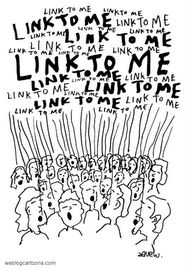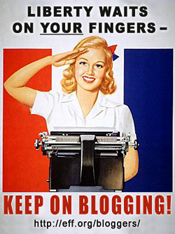The Kite Runner, by Khaled Hosseini, is about
a well to do Pashtun boy, Amir, growing up in Afghanistan during the 1970s and later is faced with turbulent times because of the Russian invasion. Behind the author’s vivid story telling, lies what may be a deeper truth; the author’s propaganda in an attempt to conjure a better image of Afghanistan post 9/11. In my
opinion, the book is a “good propaganda” because after reading the book, my views and attitude towards Afghanistan has changed in a positive way because Hosseini's book has informed me on the Afghanistan; separating my views from terrorists and the civilians of Afghanistan as different entities. Hosseini does this by informing, humanizing, and helping us to sympathize with the plight of his people having to struggle to break free from the hands of their vicious government.
On September 11, 2001, or otherwise known as 9/11, two commercial aircrafts crashed into the World Trade Center, signaling the United State that the U.S. was under a terrorist attack. There were a total of four airplanes hijacked and crashed by the terrorist. It was later discovered that the horrendous act was carried out by the Taliban and al Qaeda as its mastermind. Al Qaeda was protected and was given a safe sanctuary by the Afghanistan’s government. Because the Taliban’s government supported the al Qaeda, the United States launched a war against Afghanistan, calling it “War on Terror”. American’s sentiments towards Afghanistan had become cold and revengeful. At the time, most Americans were anti- anything Middle Eastern. I remember hearing the news that even people who looked Middle Eastern were being harassed and threaten. Violence and hate crimes on Middle Eastern people were at a high in the United States. I remember a story on a Middle Eastern man being shot and killed, and he wasn’t even Muslim. I believe that some Americans still harbor hate towards Afghanistan and their people to this day. But perhaps, this book can change people’s view point, one reader at a time. It changed mine. After reading this book, the light was shed on the Afghan people. My view of all Middle Eastern men hiding out in caves while terrorist groups like al Qaeda pulls these men’s strings to get them to commit terrorist acts, are debunked.
Hosseini uses Amir, our protagonist, to narrate his story. He recalls the contrasts in his past life, under King Zahir’s rule, versus life under the Russian powers, followed by the Taliban's, were as different as black and white. Through Amir’s narration, we see how the Afghan people lived through good times under the rule of King Zahir Shah. When Amir described his homeland, it was beautifully and warmly described. The children were children. The good times in Afghanistan was seen through the eyes of Amir when he was a boy. Amir was well off because his father was rich so he lived a comfortable life. So it is a bit biased to say that children in Afghanistan lived a good life because you only saw from Amir’s point of view. But one thing that spoke of childhood for the children in Afghanistan was the traditional kite running contest. Amir’s district had a kite running tournament. I think this epitomizes one of the Afghan children’s childhood, in their traditional sense. But under the Russian rule, that faded away for the Afghan children. Amir narrates how the children had to grow up fast. I think the children in the story had no childhood because the Taliban had snatched that away from them.
Later in the story, Amir’s driver tells Amir that the children were just lucky enough to be fed, let alone have money to buy a kite to run. Amir narrates when he went back to Afghanistan to retrieve Hassan’s little boy from the orphanage, he stayed with Farid’s family. Farid was Amir’s driver and travel guide. The children in Farid’s home stared at what Amir thought was his watch but in actuality it was Amir’s food. Lots of children were placed in orphanages because the war had pick up most of the men, leaving the children fatherless. And the mothers had no money so they couldn’t feed their children so they put their children in the orphanages, in hope of getting their children fed there. The place where Amir visited to find Hassan’s son, Sohrab, was in terrible conditions. The children were being sold to a Taliban official. Later in the story we find out that these people were doing unspeakable things to these children. If they were lucky, the children got to come back. If not, they never see or hear from them again. This part helped me feel for the Afghan children.
The peaceful life in Afghanistan got pulled out from under them because the communist placed a coup d’etat, replacing the Zahir’s rule. The narrator knew that after the Russian tanks rolled in, there will be no play left for the boys, Amir and Hassan, only an “ongoing era of bloodletting” in store for the future. Amir was told how the soldiers took over his very own childhood home and shot and killed his best friend, Hassan, and his wife, who tried to defend it. The government controlled the mouths of the Afghan people too. People became spies and they didn’t know who was on which side. Running off their mouth was fatal, as Amir recalled.
“You couldn’t trust anyone in Kabul anymore- for a fee or under threat, people told on each other…I thought of Ahmad Zahir, who played the accordion at my thirteenth birthday. He had gone for a drive with some friends, and someone later found his body on the side of the road, a bullet in the back of his head.” (112)
More brutal still was when Assef, Amir’s childhood bully, had become a bloodthirsty Taliban leader, recalls how he executed the Hazara massacre.
“Door to door we went calling for the men and boys. We’d shoot them right there in front of their families. Let them see. Let them know who they are, where they belonged…I’d sweep the barrel of my machine gun around the room and fired and fired until the smoke blinded me.” (227)
This shows how brutal their government was. No regards for human life. No one is there to stop them from taking innocent lives of their own country’s people. This made me become conscious of how the civilians of Afghanistan were suffering.
It got so bad that these people had to find a way to escape from such an evil dictatorship, so they fled. Amir and his father left Afghanistan, slipping into the night and not even telling their servant for fear that the servant will tell the soldiers, and that would spell death for both Amir, and his father. Even as they were trying to get out of Afghanistan, they faced many obstacles. The truck that Amir and his father were supposes to use to get them out of Afghanistan, had its engine blown a week before. They were cheated because the person they paid for the trip knew that. This circumstance forced them into hiding. Later they had to hide in a fuel tank to get out of Afghanistan. It was torturous as Amir recalled. This was an extremely different time then when he was a young boy flying kites in tournaments. This was informative to me. It showed me how people of Afghanistan had to regain a life that was livable again so they did what ever means it took to get them out of there.
I believed Hosseini propaganda worked. His book was written to make Afghanistan and its people human again in the readers' eyes post 9/11. By revealing information, it helps foster the idea that people in Afghanistan are not all terrorists and most are innocent civilians trapped Taliban’s ruthless reign. The people feel for the characters and in turn, feel for the Afghan people. Human conditions hit more on a universal note. Hosseini's book informed and helped me clarify the distinction between Afghan civilians and suicide bombers. That is why it is a good propaganda. I believe this should be take place on a national scale. People should be educated about the lives of the Afghan people so they can change their views. I know it is taken place on a national scale because there are over a million copies of The Kite Runner sold and there is also a movie in the making. I believe this will further spread information to help stop prejudice against Afghanistan and its innocent civilians.
Thursday, September 28, 2006
Subscribe to:
Post Comments (Atom)


No comments:
Post a Comment